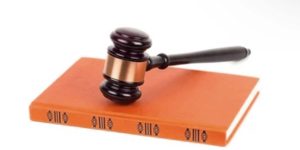First of all, what do we mean by probate?
When a person dies he still reserves the right of ownership to his assets and estate. This means that his families, loved ones, heirs and beneficiaries of his estate cannot have access to his access. His assets need to be officially and legally be passed down to his beneficiaries for them to be able to have access to them.
Probate is the legal process by which the estate of a deceased person is legally passed down to his heir. Probate proves that the last will and testament of the deceased person is valid.
In a situation where the person died intestate, the court will decide what happens to the estate of the deceased person through the process of probate.
Probating a will without a lawyer
Even with the probate process being a legal one, it is very much possible to probate a will without a lawyer. Most of the processes involved in probate do not require a lawyer though it gets to a point where the assistance of a lawyer cannot be overlooked. We will go through the probate process to determine where and where a lawyer is needed and where a lawyer is not needed.
Processes involved in probate
- Filing a petition to commence Probate
The first step in the process of probate is the filing of petition to the probate court to begin the process of probate. Also it could be for the court to officially appoint a representative for the estate if there is no will. The petition will contain certain documents like death certificate of the deceased, a valid will, etc.
To do this there will be need for the person filing the petition to fill a court form. The form will of cause require basic information of where, who, what, why, how, etc.
The assistance of a probate lawyer in this step is not necessarily relevant as you can do this step yourself but, you can consult a lawyer if you do not know how to fill the form.
- Sending notice
Depending on the state law, you will be required to send a mail to the beneficiaries stated on the will notifying them that the will is on probate, some state might demand you post the notice on newspaper. You can as well carry out this step yourself except, you do not understand how to fill the forms the court gave you for you to fill then you can go ahead to hire a lawyer.
- Taking to account all assets
You are required to put together inventory of all assets that are subject to probate and file them to the court. This step could require a lawyer especially when the deceased person has assets in different places.
- Settling bills and creditors
Here, you go through all records and settle every outstanding debts owed by the estate such as paychecks and rents, you’ll need to ensure the estate’s assets can cover all debts. If not, the state will prioritize creditor claims. Here the assistance of the attorney might be required in order to ensure that the claims of the creditors are not false claims.
- Distribution of the remaining assets
After settling all creditors, paying all outstanding bills and taxes, the remaining assets will now be distributed to the rightful heirs. During distribution of the estate of the deceased person, there might be issues of will contest by one of the beneficiaries. A lawyer will be required to represent your interest in court.
- Closing the estate
After distribution of everything, you will present and submit receipts and records of everything to the court; you will then ask that the court close the estate and that you be released from the executor’s role. Though not mandatory, it is wise you consult a professional to peruse through your documentations of report of how you managed the estate.
FAQ
Question: Is it mandatory to appoint a probate lawyer?
Answer: This depends on your state of resident but most often it is not mandatory as most of the steps involved in the process of probate can actually be done by you.
In case you get to the point where you need the help and assistance of a lawyer, our probate lawyers are always available for consult and hire.
































